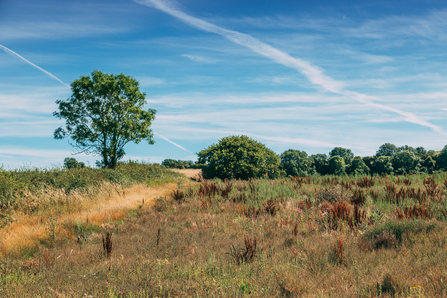The Trust was responding after the new Government underlined its “unwavering” commitment to the environment as part of the promised Planning Bill, which aims to address the housing crisis through planning reform and accelerated housebuilding.
While the Trust supports these goals, it also emphasised the crucial need – and strong economic case – for housebuilding to enhance, not harm, nature in order to ensure the UK meets its legal nature recovery targets.
Debbie Tann MBE, CEO of Hampshire & Isle of Wight Wildlife Trust, said:
“We welcome the new Government's commitment to environmental protection as part of planning reform. We recognise the need to tackle the housing crisis – but it is vital that development does not compromise the health of our natural environment or legal targets for nature’s recovery.
“As a Trust that works in partnership with local councils and developers to ensure nature’s recovery is a primary consideration, we have seen there is a robust economic case for ensuring that new housing projects enhance nature.
“Integrating green infrastructure and creating markets for nature-based solutions not only helps protect biodiversity – but also brings significant local benefits through improved air and water quality, flood protection, and enhanced wellbeing for residents.”
Clear and robust environmental protections are essential for delivering high-quality, popular developments. These protections offer an economic opportunity to support markets for key ecosystem services, benefiting associated businesses and landowners engaged in green design, habitat creation, and related fields.
In the Solent region, the Trust has proven that it is possible to work successfully with developers, local government and regulators to develop an effective and affordable nature-based solution which mitigates the environmental effects of new developments. Through its Nutrient Reduction Scheme, the Trust has rewilded unproductive land previously used for intensive agriculture at Wilder Little Duxmore and Wilder Nunwell, reducing pollution in the Solent while also restoring habitats for wildlife and bringing additional environmental gains.

